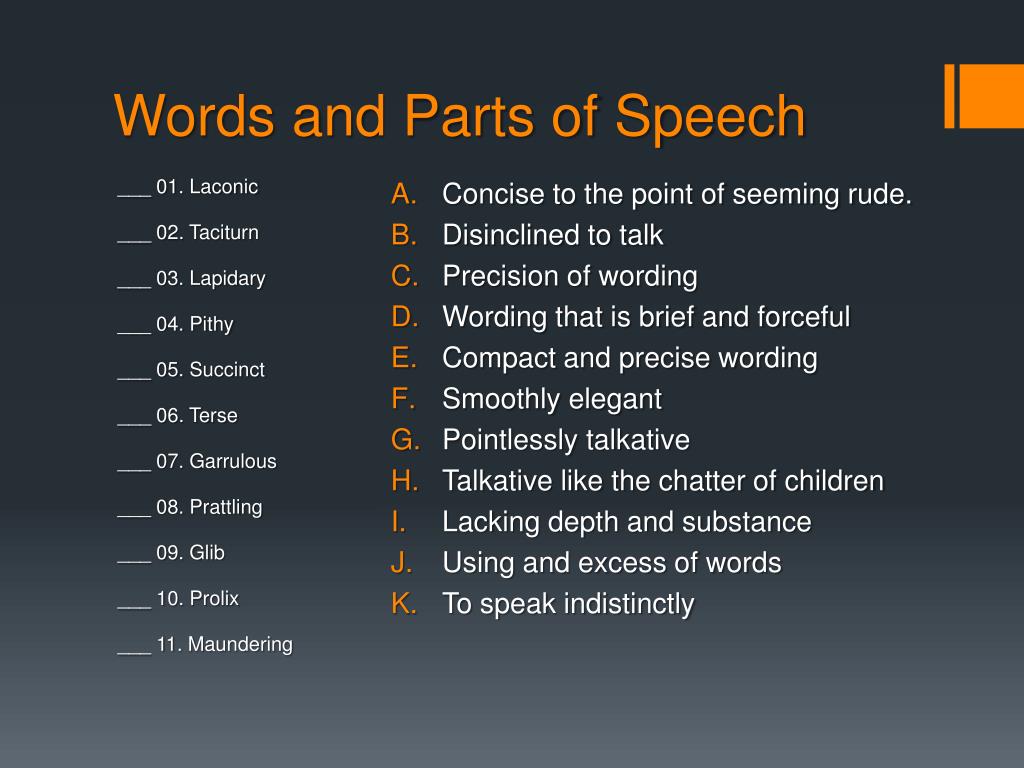


Prepositional Phrases: prepositions and their objects and modifiers. There are, however, some special types of phrases: Adverb phrase: I went down the street more slowly than I ever had before. Adjective phrase: I went down the street with a smile on my face. EX: Noun phrase: The winningest football team is at Greenville High. A phrase acts collectively as a single part of speech, and is usually a noun, adject or adverb. PHRASE: a group of related words that does not have a subject, or does not have a predicate, or both.EX: of, in, about, to, around, next to, on top of. PREPOSITIONS: These words or phrases relate nouns or pronouns to other words in a sentence, and often indicate some sort of positional relationship.EX (not a complete list): if, because, although, when, where, unless, until, since. These words help you create sentences with increasingly complicated ideas and relationships between those ideas. Subordinating Conjuctions: these begin clauses that cannot stand on their own and tell you how that clause relates to the rest of the sentence.EX: either.or, both.and, not only.but also. Coorelative Conjunctions: these are pairs of words that join equally important words, phrases, and clauses.Coordinating Conjunctions: these are single words that join words, phrases, and clauses of equal grammatical importance in the sentence.CONJUNCTION: These join words, phrases and clauses.They answer these questions about an action: where? when? why? how? in what way? how much? EX: tomorrow, next, quietly, honorably, very. Adverbs are often made from adjectives (careful - carefully). ADVERB: These modify several things: verbs, adjectives, or other adverbs.EX: Walking, throwing a football, going downtown. When a verb is in its present participle ("ing") form, it can operate as a noun (called a gerund).

EX: The car was blue and full of bullet holes. Verbs can also be linking verbs, meaning that they connect a subject to a word or group of words which describe or complete its meaning. EX: Transitive: Walter kicked the football. Verbs can be transitive, meaning that they act on something else, or intransitive, meaning that they don't. VERB: These state an action or a state of being.ADJECTIVE: These describe or modify nouns.They can be individual (I, you, he) or collective (everyone, each). PRONOUN: These substitute for nouns but act in the same way.NOUN: These name persons, things, places, ideas - can be concrete or abstract.We'll start with the basics and move on to the very confusing. This page will provide a review of the parts of speech and sentences so that you can identify for yourself when you are using them properly (and possibly understand your instructor's comments better). Return to GRAMMAR AND PUNCTUATION HELP Table of Contents.


 0 kommentar(er)
0 kommentar(er)
